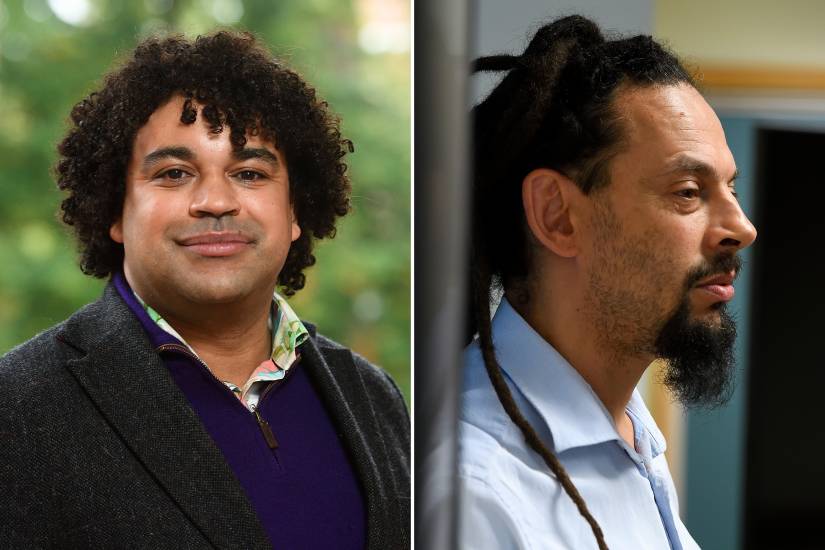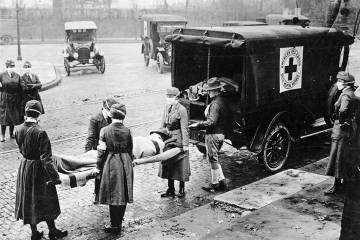Niola Etienne majored in Africana studies and history, and plans a career in public health after she graduates from Johns Hopkins this May. She had been looking for a course that combined those interests, and in her final semester, she found it in a first-time offering titled Africana Studies Meets Public Health.
"My dream job is to work within Black communities, especially with Black women, in creating public health programs to help them," says Etienne, who arrived in the U.S. from Haiti as a young child. "This class opened my eyes to be a little bit more skeptical. I came here as an immigrant, and I was always told you have to listen to a doctor, to everything they say, and this class gave me the knowledge to question what are they doing: 'Is that really for the people, or for themselves?' I think that perspective will help me in the future."
Questioning norms and shifting perspectives were top goals in creating the course, say instructors Robbie Shilliam, professor in the Department of Political Science, and Alexandre White, assistant professor in the Department of Sociology. Last year, influenced by the pandemic, faculty discussed the idea of turning an Africana studies lens on public health to provide a focal point for exploring the ongoing impacts of colonialism, slavery, and other histories of racial oppression.

Image caption: Alexandre White (left) and Robbie Shilliam
Image credit: Will Kirk / Johns Hopkins University
While well-intentioned, public health interventions sometimes miss the perspectives of those they aim to help—especially when the target population is Black, the instructors say.
"Hopkins is known for being the intellectual progenitor of public health, but what we want to add to it is a distinctive experience of studying public health at Hopkins which draws upon the histories of the city it's in, and those histories are very much intimate to Africana studies," Shilliam says.
Each week, one session consists of a conversation between two guest lecturers—examples include a historian of medicine, a professor of pediatrics, a Baltimore community organizer, a political scientist specializing in state violence, and a bioethicist. "What's really exciting about this class is that we're building intellectual connections for students between seemingly disparate fields of study, but we're also forging intellectual conversations and relationships across the university that we feel haven't existed before, that are occurring at a moment when I think it's really vital to do so," White says.
Students create video diaries in response, and the second session is a discussion of the ideas raised. The goal is not to analyze health disparities as students might do in a public health course, but to use Africana studies' focus on racism and colonialism to develop new ways of thinking about issues in public health that could drive fresh approaches and avoid the mistakes of the past.
"If we can get students to ask questions and deconstruct perspectives of public health from which questions are being asked, understand those perspectives, and then attempt to challenge them, perhaps we can develop more caring, more compassionate, more empathetic, and ultimately more effective public health strategies," White says. "We don't provide answers in the class, but potentially new ways of thinking that leave students open to novel ways of engaging in public health work."
Micki Paugh, a junior majoring in international studies, plans to work in global humanitarian efforts, in which public health plays a major role.
"I took this class because I thought it would help me to develop a better perspective on public health through the eyes of a community that has historically been ignored or negatively impacted by public health," she says. "It's made me understand the pitfalls and missing areas in public health, and how public health can be a weapon against marginalized populations. I hope to take this knowledge with me as I go abroad, and maintain my attitude of critically analyzing public health in the future."
Posted in Health, Politics+Society
Tagged public health, health disparities, africana studies, black history








